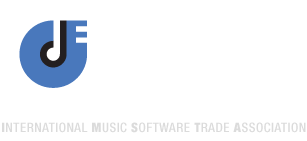Myths
"The music software companies are huge"
First of all, stealing from a big company is just as bad as stealing from a small company. Many of our members are tiny operations and the loss of income from piracy hits them especially hard. With just a few exceptions the vast majority of our members have less than 20 employees, quite a few are 2 and 3 person operations. The impact of software theft on these small companies is immense.
"Software costs nothing to make - a CD, manual, box"
That's like saying a record costs nothing to make - just a CD, insert and jewel case. The fact is it costs money to make software because the companies have to pay the developers a salary. There is also major capital investment involved in having an establishment set up to develop software. Anyone who can't understand that there are costs above and beyond the physical CD is looking to justify their illicit behavior.
"Stealing software is not the same as stealing a bottle of Coke"
Stealing is stealing. Thou shalt not steal doesn't come with an escape clause. Stealing software is stealing. Because software can be copied and a bottle of Coke cannot doesn't mean that it's somehow morally permissible to steal software. Software is protected by law just like that bottle of Coke is. If it came right down to it, the law sees no difference.
"Companies release buggy software anyway, I need to use a crack to see if I like it"
We are not going to become apologists for software companies with buggy code. However, it is not unreasonable to expect that a program with tens of millions of lines of code may contain a few bugs. Even cars roll off the assembly line with defects that are fixed with recalls. The fact that a software program has a bug, or several bugs, doesn't justify stealing it, any more than stealing a car that's the subject of a recall. Many people do indeed use a crack for a certain amount of time and some of them do indeed go out and buy the program but the vast majority do not. Let's face facts - a musician using a pirated copy of a software program, especially to make music [intellectual property], for any significant period of time is a sign of moral bankruptcy.
"My one crack copy doesn't add up to a hill of beans in the grand scheme of things"
Let's extend this kind of thinking to the entire potential customer base. The software that you are stealing is financially supported exclusively by people who pay for it. These people feel, correctly, that they should pay for the software that they use and choose to buy. Why not make your contribution instead of getting a free ride? If everyone thought this way the music software industry would fold up and disappear.
"Everybody is using cracks, why shouldn't I?"
It's unfair to judge stealing as right based on so called "societal norms". There was a time when just about everyone was OK with drunk driving, did that make it right? 20 years ago no one was recycling garbage - did that make it OK? Ike is famous for saying he beat his wife no more or no less than the average man. Does that make it right? 200 years ago slavery was OK too, right? Software theft is a damaging social ill - the fact that everyone is not educated and not socially aware of the negative consequences doesn't make it right.
"The software companies are charging too much"
Every manufacturer has a right to set prices.
To justify stealing software because the manufacturer is "charging too much" is yet another sign of moral bankruptcy.
Is it OK to steal a Ferrari or Mercedes Benz because, in your opinion, the manufacturer is "charging too much"?
The fact is there is a vast selection of cars out there.
If you can't afford a Mercedes then buy a Ford. Similarly, there is a vast selection of software tools ranging along a full pricing spectrum.
If you cannot afford the "expensive" programs buy something you can afford.
If you can't afford anything at all then you should do without and not resort to stealing.
A sequencer replaces a recording studio costing tens of thousands of dollars.
It brings music making technology to a price point where the vast majority of creative people can have access to it.
It once required hundreds of thousands of dollars to make a professional quality recording.
Today the average working musician can access this technology at unprecedented and affordable prices - something musicians just 10-15 years ago could only dream of.
The vast array of virtual instrument costs 5-15% of the actual hardware equivalents just a few years ago.
How can anyone claim that software is expensive? It is actually inexpensive by ever comparative analysis.
An FM7 retails for 10% of what a DX7 did.






 days left to register
days left to register

 days left to register
days left to register
